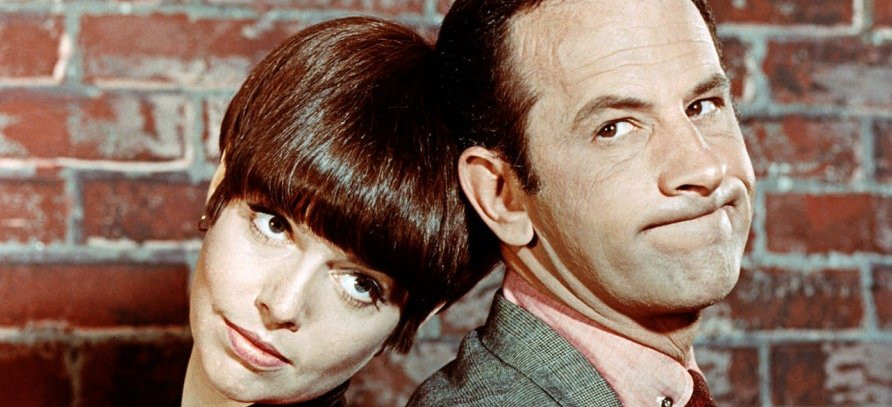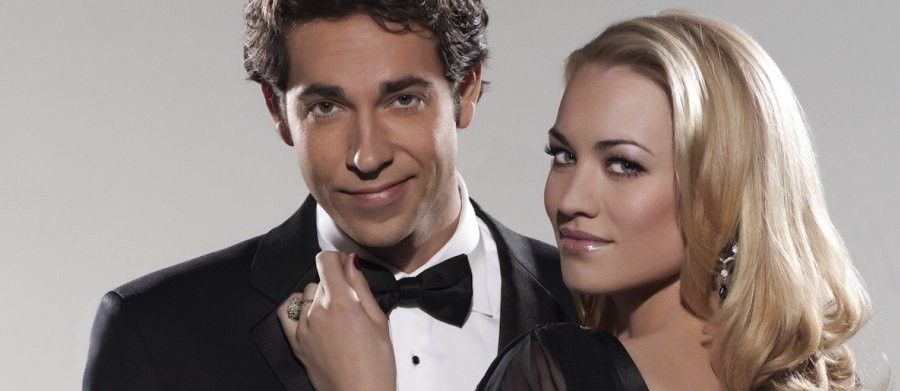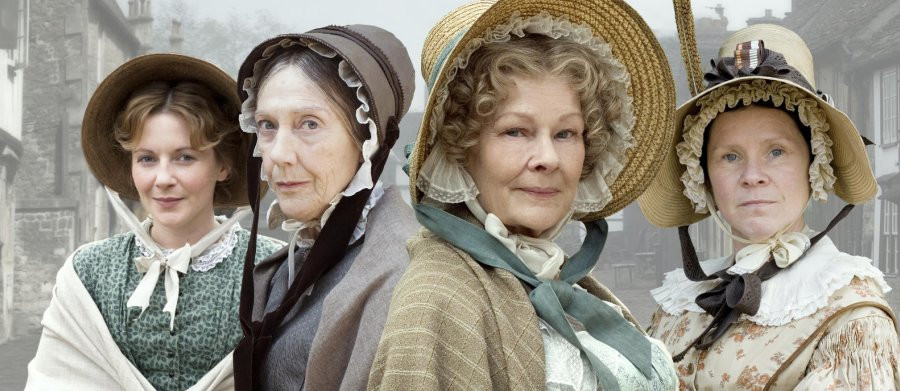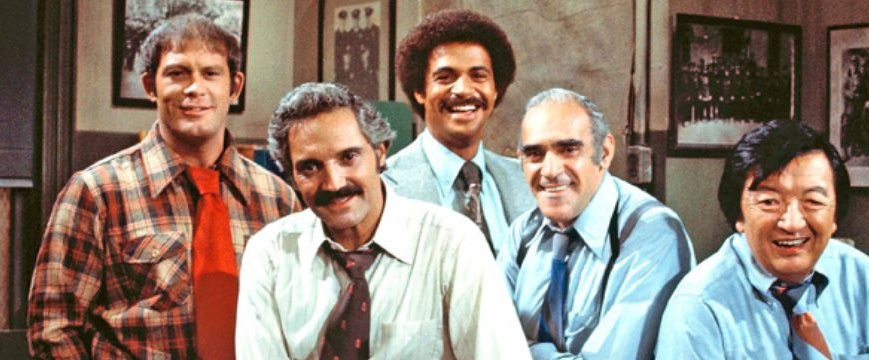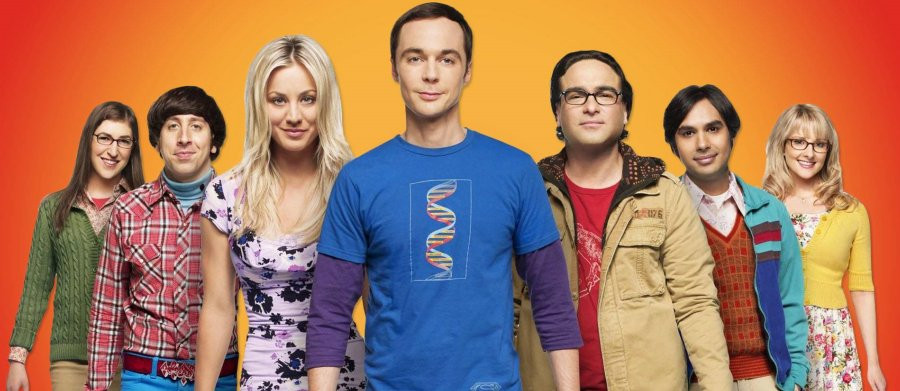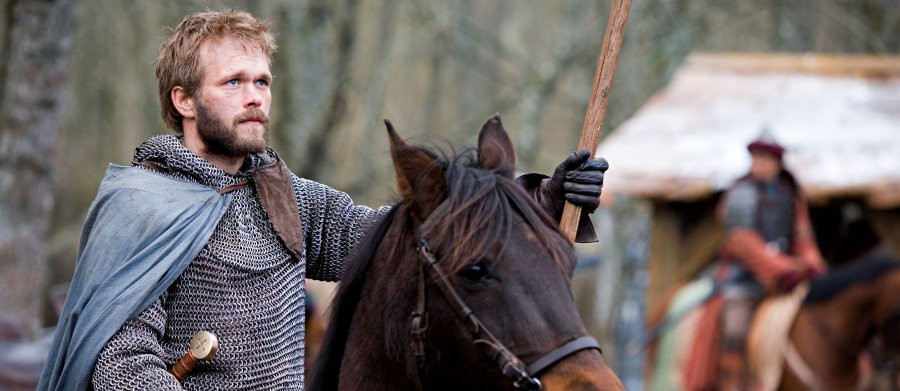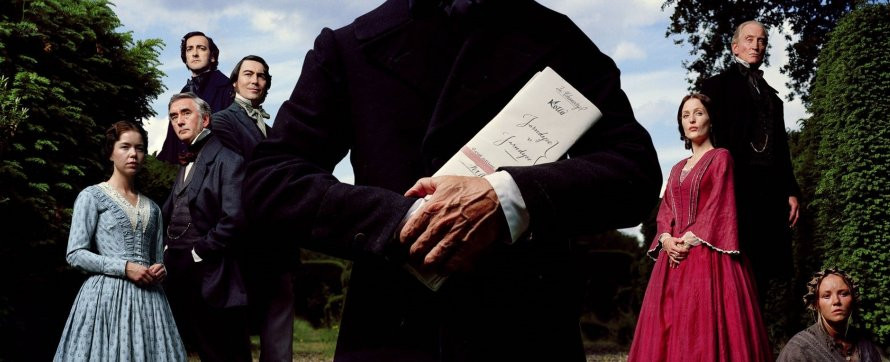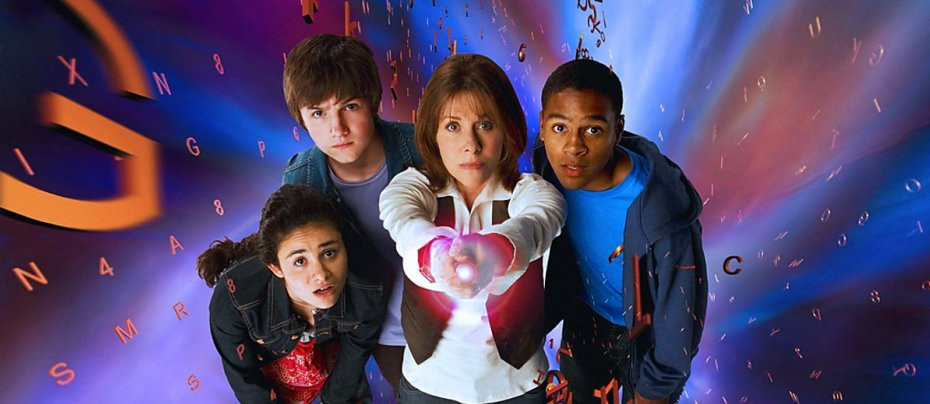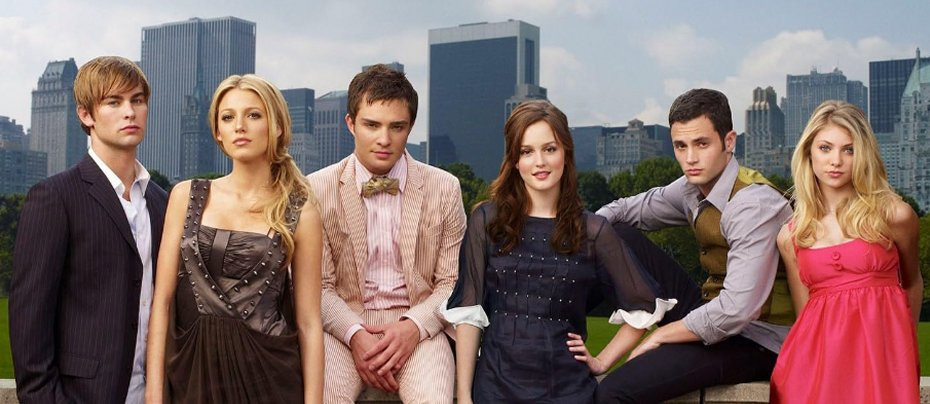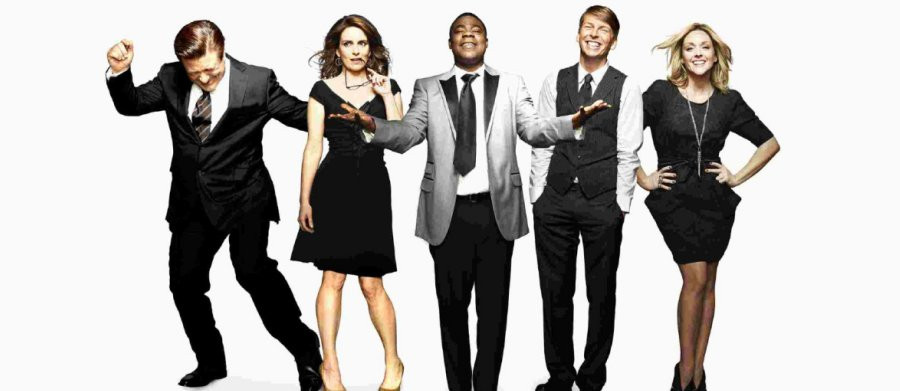
30 Rock
2007 - United StatesReview: J.D. Collins
After nearly a decade as the first female head writer of the late night comedy show Saturday Night Live, Tina Fey used her experiences working behind the scenes as the basis for her first sitcom. Beginning at the same time as another series with a similar premise, Studio 60 On the SunSet Strip, 30 Rock would prove triumphant and, while it survived its seven year run by the skin of its hilarious teeth, it would become one of the greatest television shows of all time.
On the surface, 30 Rock seems like an overt fictionalised satire of Saturday Night Live; it is centred around the making of ‘The Girly Show’, a topical and whacky late night comedy sketch show, that's filmed live at 30 Rockefeller Plaza in New York. While Saturday Night Live is an American cultural touchstone, its fictional counterpart is knowingly dismal and helps 30 Rock avoid becoming a self indulgent meta mess. Soon enough, the behind the scenes setting becomes a smoke screen to a sitcom about workplace hierarchy and popular culture.
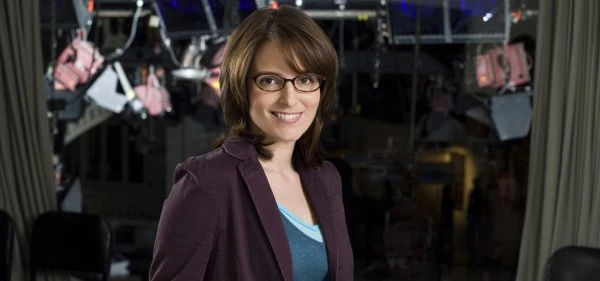
Alongside creating and writing the series, Fey also stars as the sketch show's head writer Liz Lemon. In Lemon, Fey created one of the most authentic TV characters ever as her quirky personality and geeky interests set her apart from the usual mold of female characters who tick every feminine stereotype. She is driven by work and keeps the behind the scenes chaos afloat, usually at the expense of her own sanity. Her struggles in relationships is also shown as, although her boyfriends are mostly forgettable, her lack of confidence is very well portrayed; in particular her repulsion, or lack of interest in sex is a fresh take on at the subject when compared to other sitcoms which show characters obsessed about getting it or not.
The star of ‘The Girly Show’ is Liz's long time best friend Jenna Maroney, who embodies the stereotypical ditzy, highly strung and superficial actress. Played by Jane Krakowski, she brings a likeability to another otherwise monstrous character with a sincerity to the performance along with moments that do show her humane side.

In the pilot episode, ‘The Girly Show’ is rocked by the arrival of Tracy Jordan, a Hollywood film star who throws his weight around and is a walking disaster area. His brash and unpredictable personality was based upon the actor who portrays him, Tracy Morgan. Morgan takes the direct inspiration in his stride and ramps up the character's often absurd moments for maximum comic affect.
Wide eyed and smiley Kenneth Parcel is an NBC pager who is a textbook TV fanatic and wants to achieve a career behind the scenes.
Along with Tracy, the pilot episode also introduces Jack Donaghy, another character who drops into Liz's world like a bomb, as he becomes her new boss as part of his role as the network Vice President. Their relationship becomes a focal point of the series as much of the storylines and individual characters arc are either fueled, or developed further, by their interaction and conversations which usually includes life changing advice.
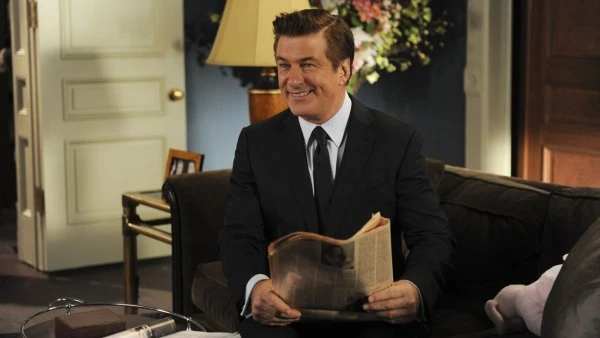
Donaghy is portrayed by Alec Baldwin and looking back at a pre-Big Little Liars era when movie stars still felt that television was beneath them, a high calibre actor like Baldwin commiting to an acclaimed, but low rated sitcom was a big deal. As the most experienced actor in the show, Donaghy turns out to be the funniest character as Baldwin's serious delivery, especially when throwing himself into the show's more surreal and farcical moments, is particularly effective.
With a phenomenal cast, the show's production team worked hard to produce some of the most ambitious and wackiest episodes in TV comedy history. The actors rarely get time to breathe thanks to the rapid dialogue; 30 Rock includes more gags in two minutes than a lesser sitcom can achieve in one episode or even an entire season. Cutaway gags were a regular feature, and were usually to flashbacks that were unrelated to the overall plot, linked directly to a character's current conversation and often including nonsensical jokes. The humour is surreal and meta, with jokes and plots that resemble real life, such as Tracy Morgan’s health issues and controversial persona.
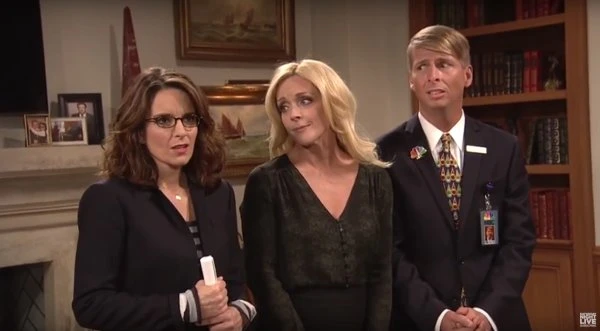
The series' unique style also lent itself to occasionally breaking out of the formula by producing experimental episodes. Season's 5 and 6 included episodes that were recorded live in front of a studio audience and to the entire American viewing public. These episodes showed just how different the series would be as a studio based sitcom, although they never lost the unique style and humour.
While the series is set in the dual world of creative and corporate television, its depiction of workplace hierarchy is relatable and realistic. For example, Kenneth, for all his meek personality, represents an ambitious climber who's willing to start at the bottom to achieve his dreams.
The series also reflected the changing political and popular culture landscape that although dated in terms of what it encapsulates, is a snapshot of an era that was the beginning of the weird times that we currently live in. Unlike other shows like Friends, 30 Rockdoesn't feel like a safe haven or a bygone era that we look back on with rose tinted specs. Indeed, things have gotten stranger, but it was strange even back then!
30 Rock was immediately championed by critics and won a plethora of prestigious awards throughout its entire run. Despite the critical success and capturing the zeitgeist of the times, 30 Rock never became a 'hit' sitcom. In fact, it's due to the critical adoration that the series survived so long.
While the sitcom genre has evolved, television audiences still tend to favour more broad, studio based comedies. The show's peak of 8 million viewers, is far from the 18-30 million who regularly tuned into the more traditional contemporaries like Two and a Half Men and The Big Bang Theory.
In hindsight, for all its brilliance, 30 Rock is not really a commercial show. Firstly, the premise of making a late-night sketch show doesn't have the same draw as more relatable settings as seen in shows like Cheers or The Office. And secondly, the humour is perhaps too surreal and irreverent to attract a mainstream audience.
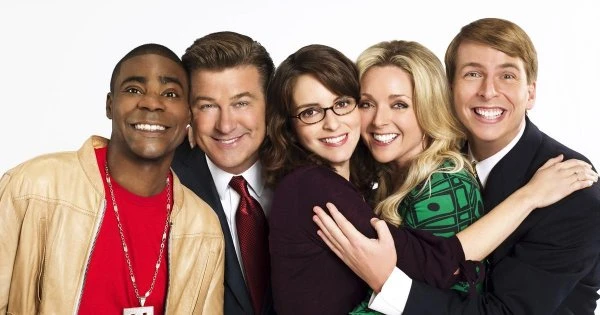
Comedy critics often sneer at studio based comedies and praise single camera shows with a pretentious heir. While 30 Rock is not traditional of most television comedy, it retains a warm familiarity with flawed but lovable characters that you want to revisit just like any other big hit comedy series.
30 Rock has shown that sitcoms don't need to be 'massive,' as say Friends or Seinfeld, to be considered relevant, important or well loved. In the years since it ended, the series' cult following remains strong and it is now considered both a TV classic and a comic treasure that's guaranteed to be discovered, and rediscovered, for years to come.
About the reviewer J.D. Collins
J.D. (as in John David and not Jack Daniels) is an admin assistant by day and a writer, dog owner and hologram by night.
He wants to clarify that he has not got an unhealthy obsession with The X-Files despite owning dogs called Mulder and Scully and being the author of the Amazon Ebook "Reviving the Truth: A Critical Binge of The X-Files Post 2002."
J.D. can be found on Twitter; @jdcollins95
Seen this show? How do you rate it?
Seen this show? How do you rate it?
Published on March 23rd, 2020. Written by J.D. Collins for Television Heaven.


